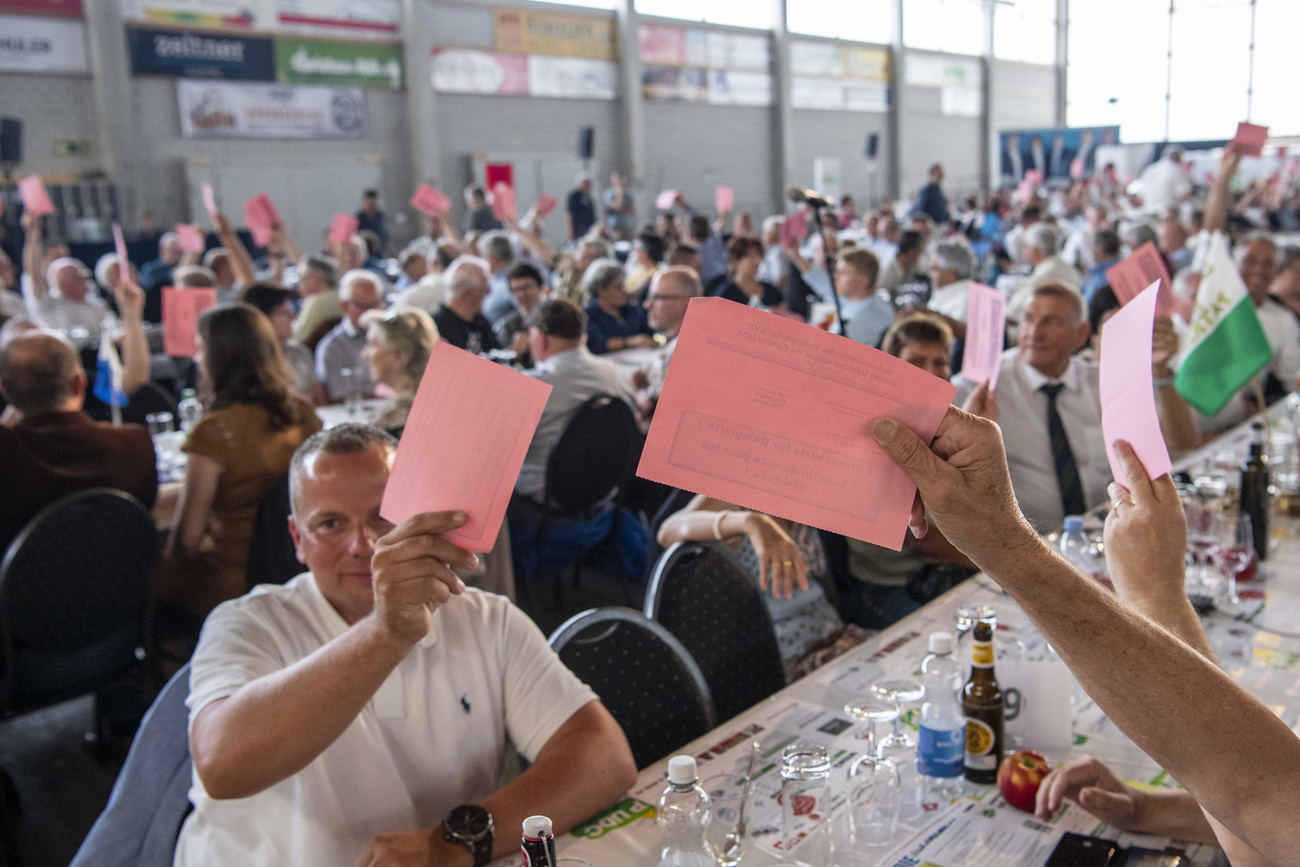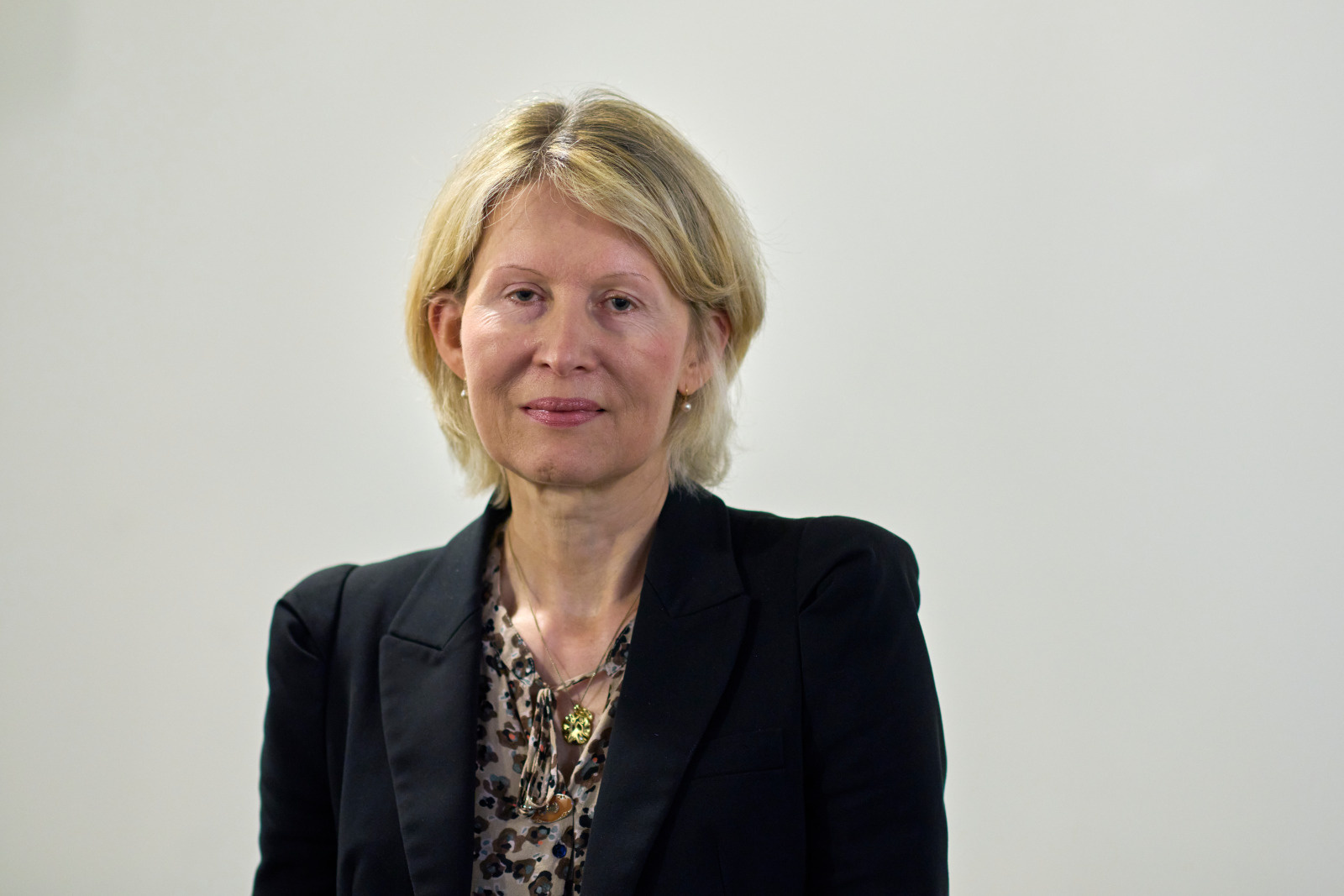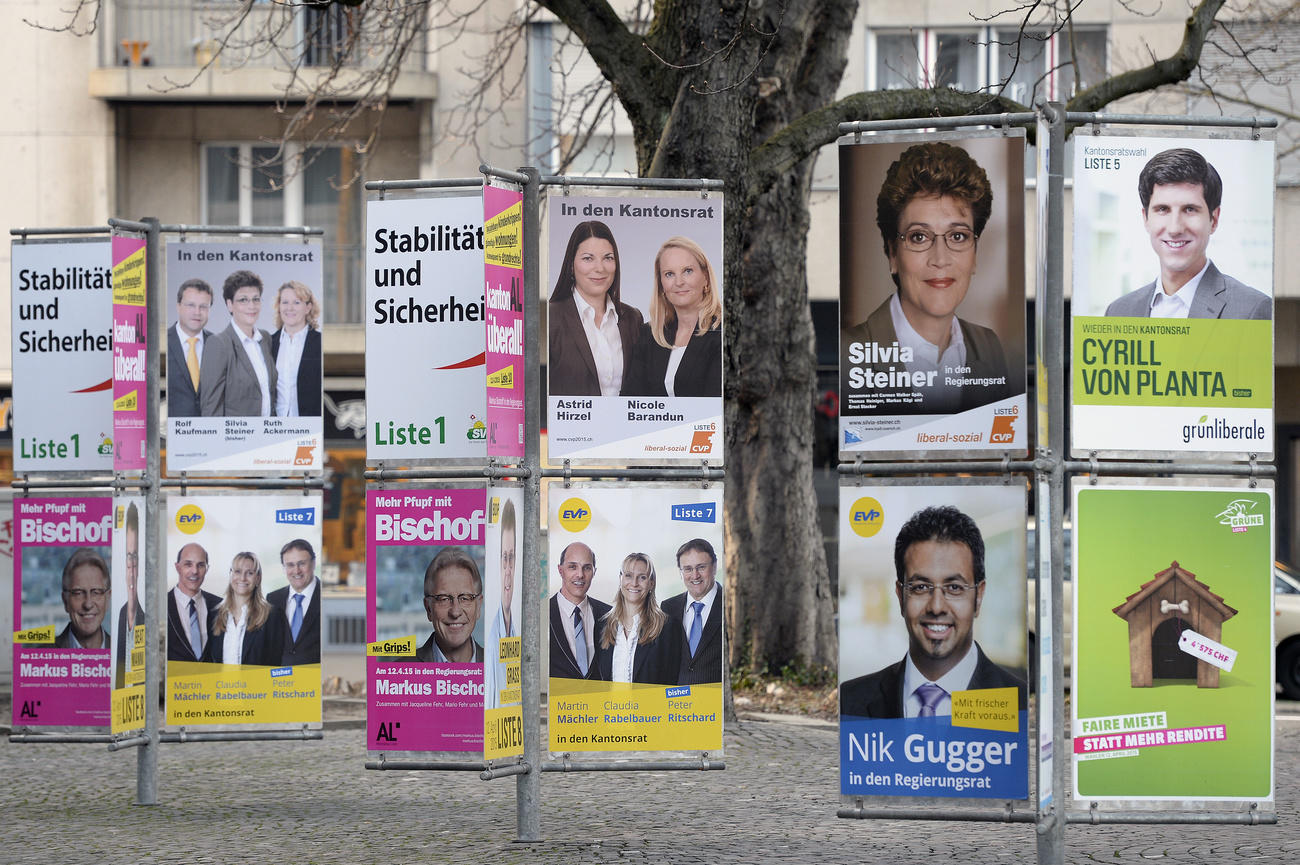‘Only a minority try to get around transparency rules’

Hanne Juncher, executive secretary of the Group of States against Corruption (GRECO) of the Council of Europe, believes that the way politicians and their parties are funded is not a private matter – even in a country like Switzerland, where members of parliament serve part-time.
The Swiss will elect a new parliament on October 22. For the first time in a national vote, the campaign will be subject to new transparency rules. Donations of over CHF15,000 ($16,960) have to be declared by September 7, as do campaign budgets in excess of CHF50,000.
Up until now, Switzerland has always lagged behind the rest of Europe when it comes to transparency of party funding.
SWI swissinfo.ch: For over a decade you have been urging Switzerland to have more transparency when it comes to funding of election campaigns. This year, for the first time in national elections, rules have been put in place. Has pressure from GRECO finally paid off?
Hanne Juncher: This increased transparency is not just due to pressure from GRECO, but our efforts did play a key role. GRECO put out its first report on the subject with specific recommendations in 2011. There were more than ten follow-up reports that looked at the extent to which these recommendations were being adopted.
The Swiss media provided extensive coverage of these reports. We think that our reports, plus pressure from the media as well as the people’s initiative on transparency in 2017 [launched by parties of the left and centre], which basically called for our recommendations to be adopted, were all determining factors in this legislative change.

SWI: Is the new legislation strong enough or does it need more teeth in your view?
H.J.: Well, GRECO itself will answer that question when it puts out its next follow-up report in March 2024.
SWI: Why does it matter so much in a democracy like Switzerland that people should know who is funding parties, candidates, and election campaigns?
H.J.: In any democracy, voters need to know who is bankrolling political parties and election candidates. These donations may turn out to explain why parties or candidates take certain positions on current political and social issues.
This is all the more important in Switzerland, because unlike in most countries in Europe, the state doesn’t make any contribution to the support of political parties or candidates for elections. They are mainly dependent on private donations, and these donors may wield a great deal of influence.

More
Switzerland criticised over opaque political financing
SWI: Donations exceeding CHF15,000 now have to be declared, as well as campaign budgets over CHF50,000. One can imagine that there could now be donations of CHF14,999 at a time. How likely is it that people will find ways around the legislation?
H.J.: There are always risks like that, of people paying just under the limit. Whatever the rules and the limits established, we found that in many of our member states some donors will try to break up their funding into convenient chunks to get around the transparency rules. But they are really just a minority.
All donors won’t try to get around the rules, so there is bound to be more transparency than what went before. On the other hand, the authority tasked with keeping an eye on transparency – in Switzerland, that would be the Federal Audit Office – needs to check that the rules are not being bent in any way and to take action if they are.
SWI: Although there has been progress on funding of political campaigns, you recently issued a harsh report on Switzerland. According to the report, “there has been no progress in the overall implementation of the recommendations” on preventing corruption on the part of parliamentarians or judges. Is GRECO still displeased with Switzerland?
H.J.: That report wasn’t about political funding, but about stopping corruption among parliamentarians, judges and public prosecutors, as part of a different evaluation being done by GRECO. The report on Switzerland was initiated in 2016 and it resulted in a different set of recommendations from the ones on transparency of political funding.
GRECO is now looking at how Switzerland is applying these recommendations, as it does for all member states. This is the usual kind of follow-up on evaluations done by GRECO, and Switzerland is committed to this process as a member of our organisation.
SWI: In this recent report, you criticise the fact that parliamentarians are still not required to declare their earnings outside parliament. But given the fact that they serve only part-time as members of parliament, wouldn’t that be an intrusion in their private life?
H.J.: When a man or a woman decides to run for political office, he or she needs to expect that there will be limits to their right to privacy as compared to ordinary citizens who do not aspire to public office. The part-time status of parliamentarians in Switzerland makes no difference to that.
Just as transparency of political funding can shed light on any influences or connections with the positions taken by parties and candidates, it’s also important to know what interests parliamentarians themselves have, because this can help to explain some of the positions they take – and that can help voters decide whether to re-elect them or not.
SWI: Parliament has still not ratified the code of ethics for members, although it was one of your recommendations. How would that help make Swiss democracy more transparent?
H.J.: That particular recommendation was part of GRECO’s evaluation of how to prevent corruption among parliamentarians. It wasn’t aimed at making politics itself more transparent, but at strengthening the integrity of people elected to the federal parliament.
At the same time, some of the points in a code of ethics – for example, greater transparency in relation to contacts between parliamentarians and lobbyists or other such third parties – will surely contribute to greater transparency in democracy in general.

More
Politicians approve legislation for more funding transparency
*The interview was carried out in writing.

In compliance with the JTI standards
More: SWI swissinfo.ch certified by the Journalism Trust Initiative











You can find an overview of ongoing debates with our journalists here . Please join us!
If you want to start a conversation about a topic raised in this article or want to report factual errors, email us at english@swissinfo.ch.